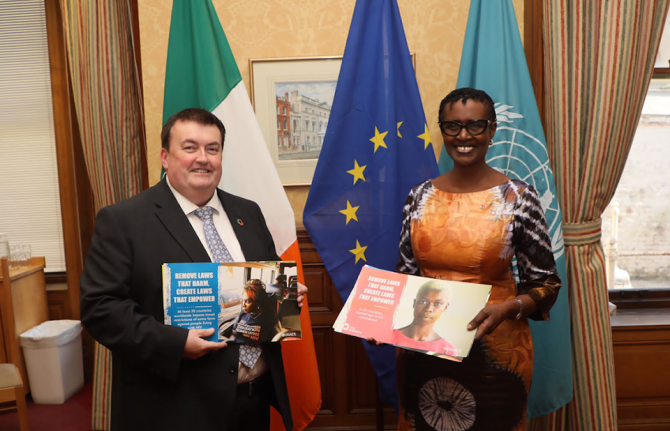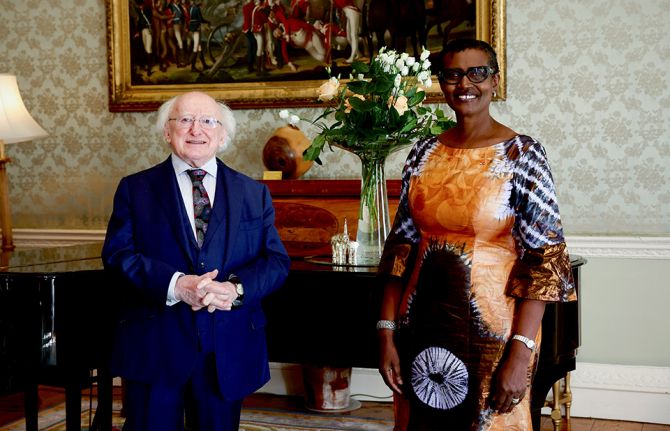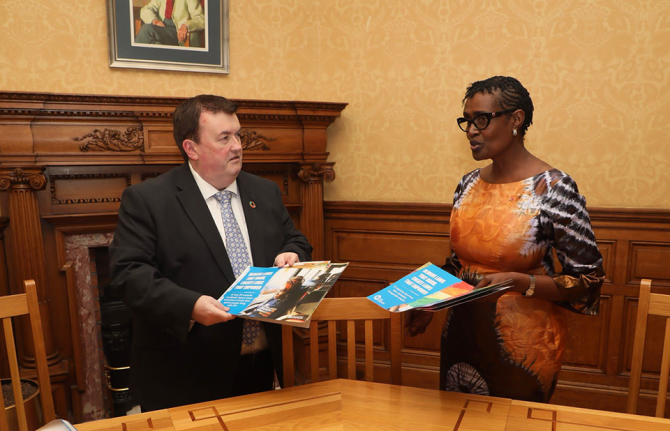



Press Release
On Zero Discrimination Day, Ireland and UNAIDS strengthen their partnership to end the AIDS pandemic
01 March 2022 01 March 2022DUBLIN/GENEVA, 1 March 2022—Ireland has today announced that it is increasing its core funding for UNAIDS from €2.4 million in 2021 to €2.5 million in 2022. The announcement was made at a meeting in Dublin between Ireland’s Minister for Overseas Development Aid and Diaspora, Colm Brophy, and the Executive Director of UNAIDS, Winnie Byanyima.
Ireland has been a partner and supporter of UNAIDS for more than 20 years. It has supported programmes that reduce the impact of HIV among some of the most-at-risk groups, including gay men and other men who have sex with men and young women and girls. In addition to the €2.4 million contribution in 2021, Ireland provided €1 million in support of UNAIDS’ zero discrimination agenda.
“Ireland is a strong leader in the global AIDS response and continues to be a steadfast ally to UNAIDS,” said Ms Byanyima. “This additional financial contribution from Irish Aid is an important signal at a time when the world must step up its efforts to remove laws that harm and instead create laws that empower so that people can receive life-saving and life-changing HIV services.”
This year on Zero Discrimination Day, which is being held under the theme “Remove laws that harm, create laws that empower”, UNAIDS is highlighting the urgent need to take action against discriminatory laws. In many countries, laws result in people being treated differently, excluded from essential services or being subject to undue restrictions on how they live their lives, simply because of who they are, what they do or who they love. Such laws are discriminatory—they deny human rights and fundamental freedoms.
On Zero Discrimination Day, 1 March, we celebrate the right of everyone to live a full and productive life—and live it with dignity and free from discrimination.
UNAIDS
The Joint United Nations Programme on HIV/AIDS (UNAIDS) leads and inspires the world to achieve its shared vision of zero new HIV infections, zero discrimination and zero AIDS-related deaths. UNAIDS unites the efforts of 11 UN organizations—UNHCR, UNICEF, WFP, UNDP, UNFPA, UNODC, UN Women, ILO, UNESCO, WHO and the World Bank—and works closely with global and national partners towards ending the AIDS epidemic by 2030 as part of the Sustainable Development Goals. Learn more at unaids.org and connect with us on Facebook, Twitter, Instagram and YouTube.
